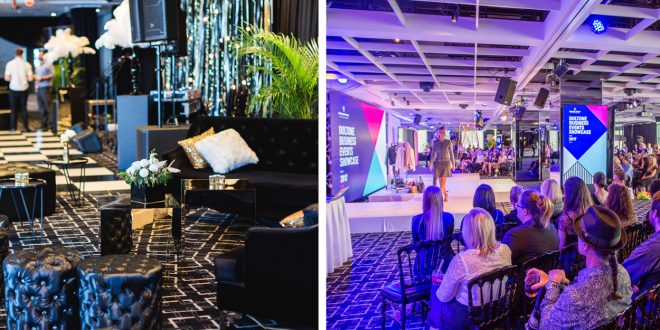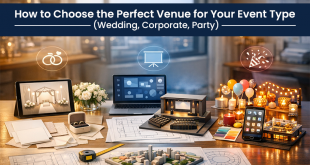Corporate event planning is an intricate task with a multitude of factors to consider. One of the most crucial decisions entails picking a fitting venue. The location you select can significantly impact the overall success and atmosphere of your event. This guide will delve into the ins and outs of choosing an ideal corporate event venue, highlighting essential tips and aspects to consider.
1. Understand Your Event Needs
1.1. Define the Event’s Purpose

Every corporate event has a unique objective, which not only sets the tone but also influences the venue choice. For instance, networking events require a relaxed space that encourages conversation and interaction. Training sessions, on the other hand, need a conducive environment with good acoustics, minimal distractions, and classroom-style seating. Thus, the event’s purpose should align with the venue’s setting.
1.2. Know Your Audience

Knowing your attendees is pivotal. The demographic of your guest list can significantly influence the venue selection. A venue fitting for corporate executives might vastly differ from one that appeals to creative professionals. Remember, the venue is an extension of the event’s appeal. If your audience feels out of place, it may impact the event’s overall success.
1.3. Estimate the Size

Properly estimating the size of your venue in line with your event’s needs is critical. A venue too large can make your event feel sparse and under-attended, while a too-small venue can feel cramped and uncomfortable. Your venue should feel comfortably full, with enough space for all planned activities.
Book your Venue with Venuelook, contact us at venuelook.com/getquote
2. Location: The Cornerstone of Your Event’s Success
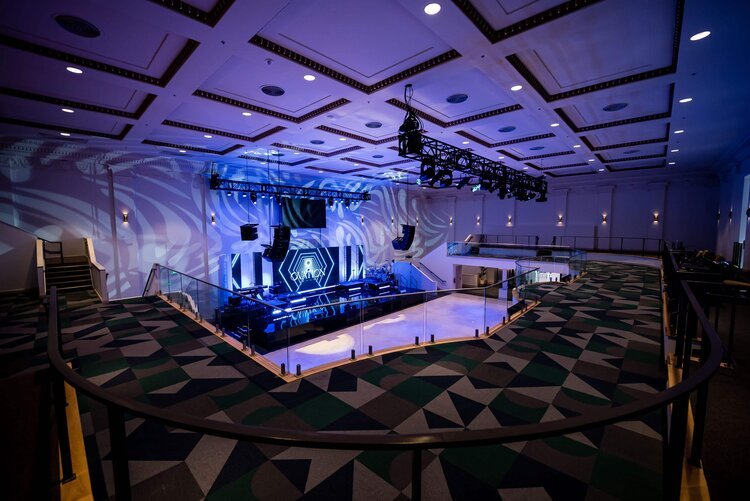
The locale of your corporate event venue is a strategic decision that can significantly impact your event’s attendance, mood, and overall success. Choose a location that’s easily accessible for your attendees, well-served by public transport, and situated in a safe area. The venue’s location should complement the event’s theme or purpose.
3. Size Matters: Picking the Right Capacity
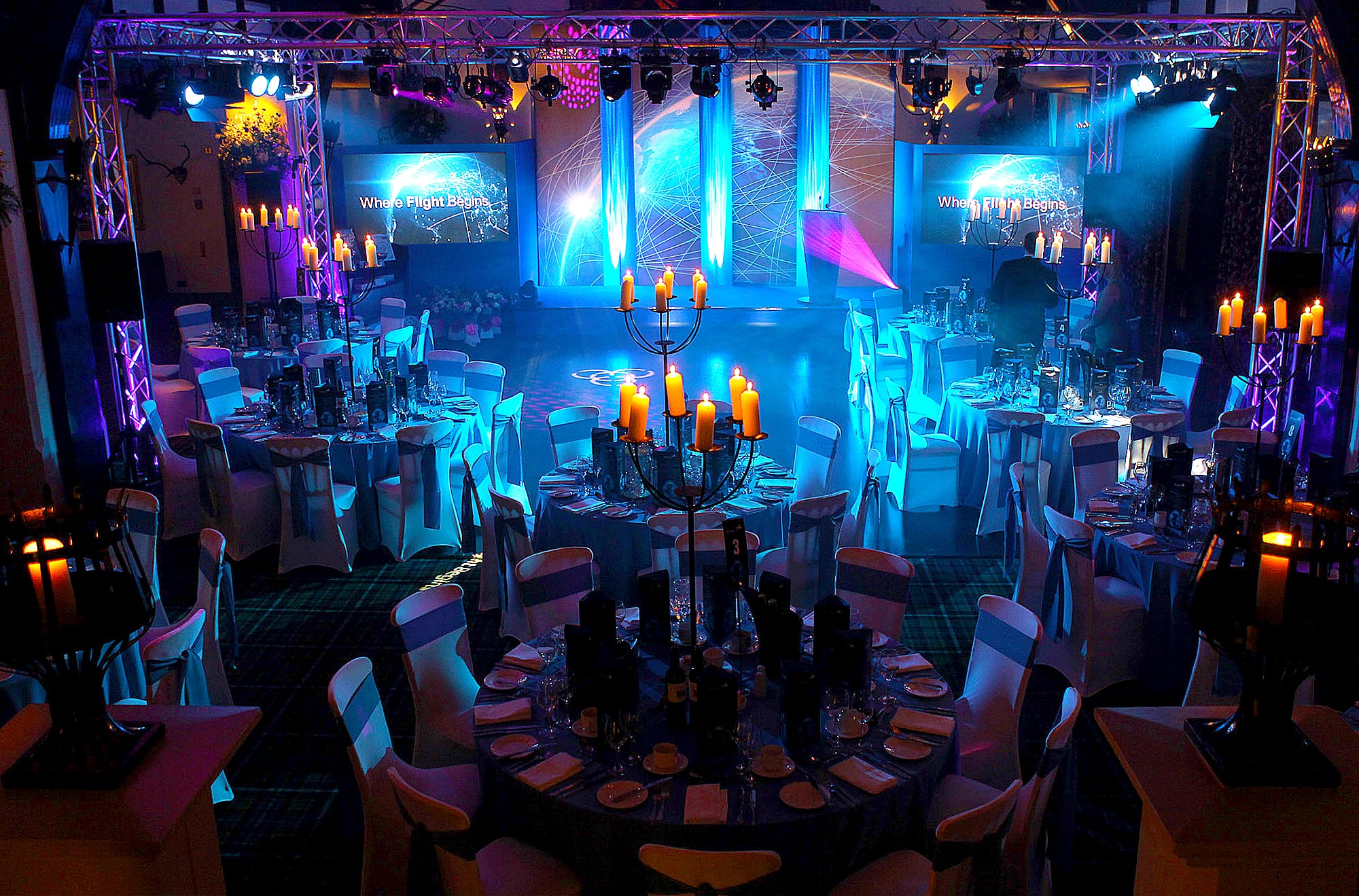
Choosing a venue with the right size and capacity is crucial. Consider the number of guests, the nature of the event, room for activities, space needed for staff and vendors, and layout flexibility. Also, ensure that your venue adheres to necessary safety regulations and can comfortably accommodate your guest list.
4. Understanding Venue Dynamics
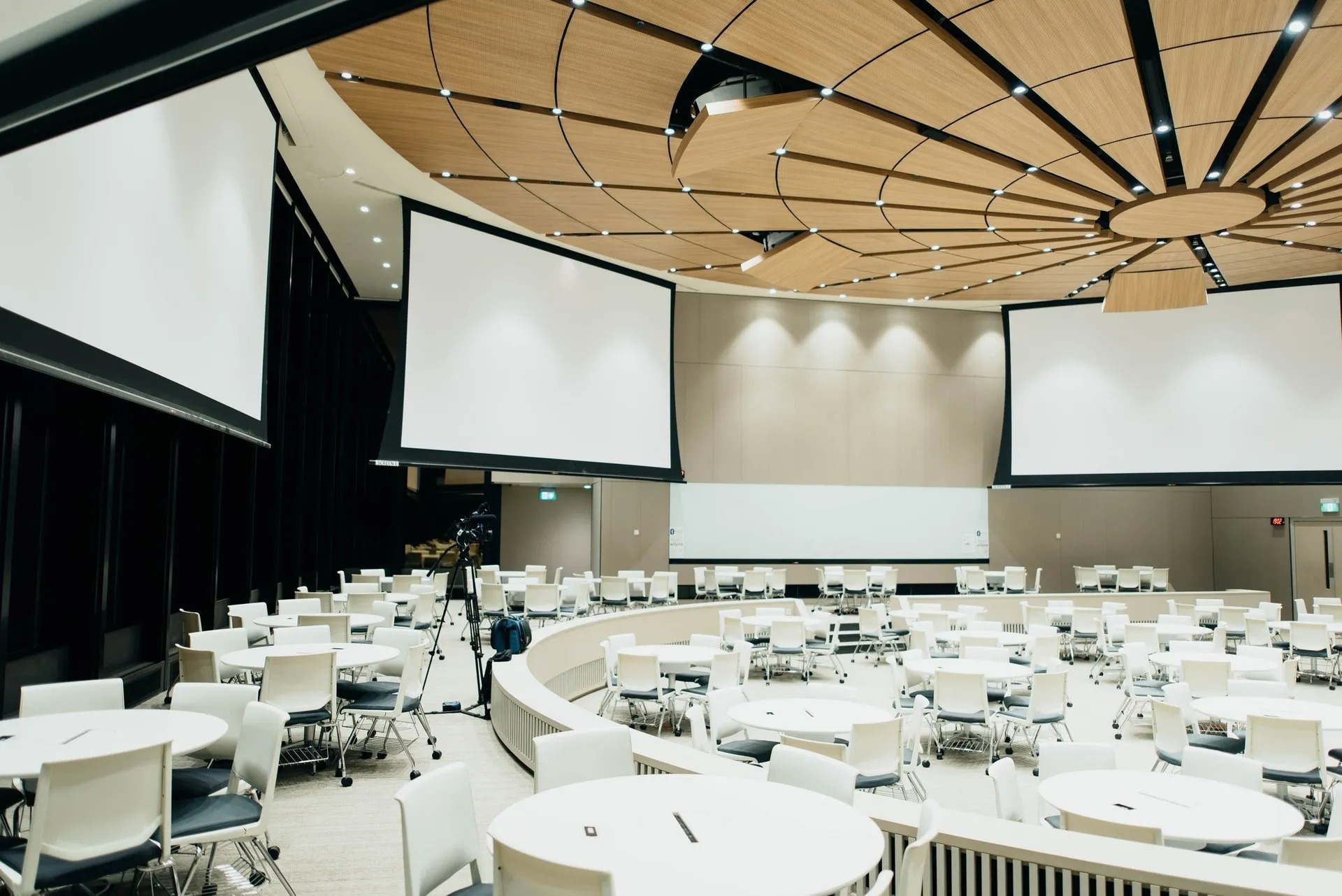
Understanding the broader venue dynamics, knowing your neighbors, considering guest movement and interaction, venue layout and signage, and evaluating external factors are all essential aspects of finding the perfect venue for a successful event.
5. Budget Considerations: Balancing Cost and Value
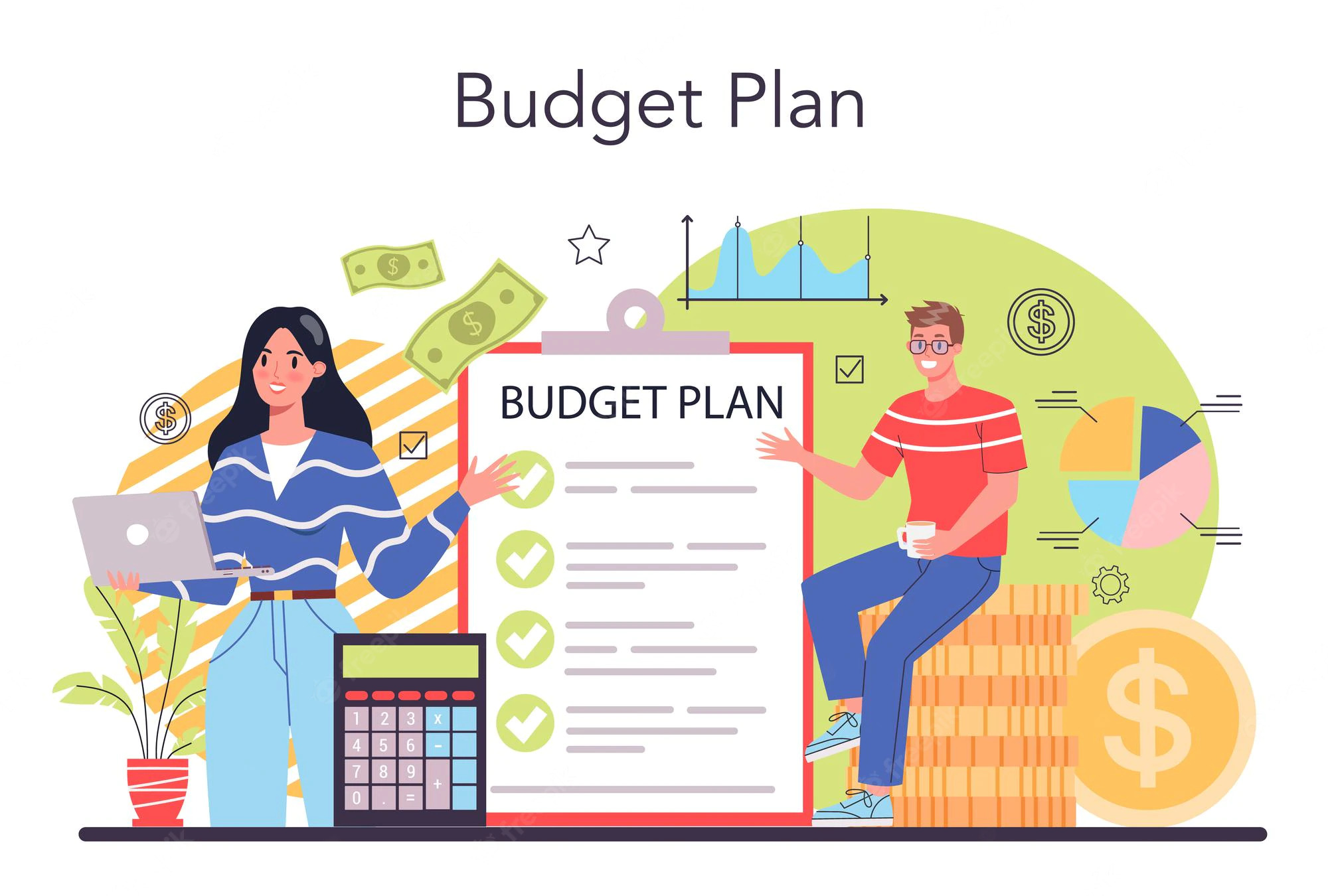
Navigating budget constraints is a vital part of the planning process. Understanding your budget, the location pricing model, and being aware of potential hidden costs are crucial elements in finding the perfect event venue.
Book your Venue with Venuelook, contact us at venuelook.com/getquote
6. Style and Ambiance: Setting the Tone for Your Event
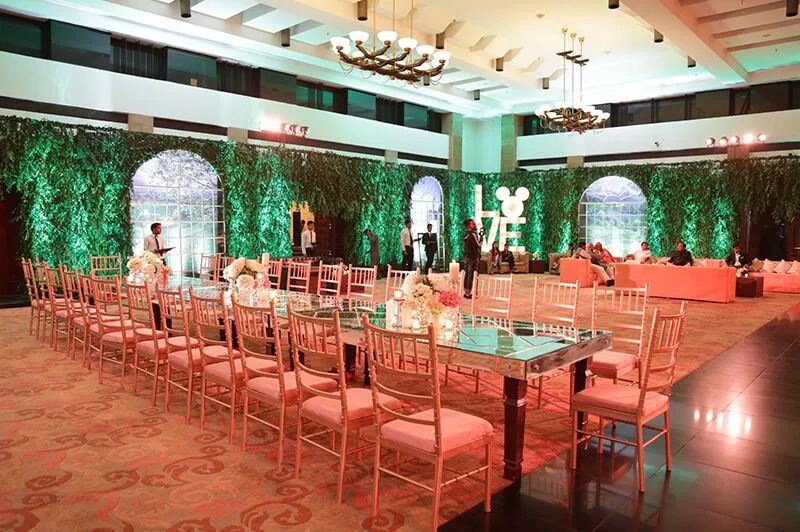
The venue’s style and ambiance are key in defining the mood of your event. The choice should reflect your brand identity, and the ambiance should set the intended mood. This will contribute to creating a memorable and impactful experience.
7. Amenities and Facilities: Ensuring a Fully-Equipped Venue

The right amenities and facilities at a venue can significantly enhance the overall experience of your event. Technical amenities, catering options, accessibility features, breakout rooms, and safety measures are all key features to consider when choosing the next corporate event venue.
8. Flexibility and Layout Options: Tailoring the Perfect Venue to Your Event
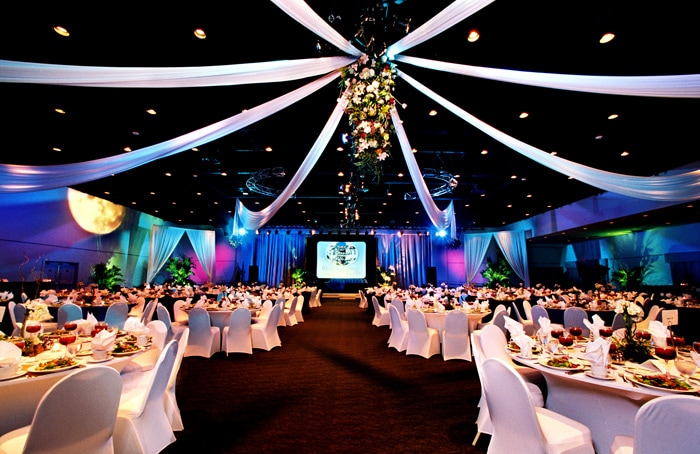
The layout of your event venue plays a crucial role in the functionality and flow of your gathering. A venue that offers flexible layout options can adapt to the specific needs of your event, enhancing the experience for your attendees.
9. What are the Services and Amenities of the Venue?

When planning a corporate event, it’s important to consider the venue’s catering and dining supplies. Does the venue have a well-staffed, restaurant-grade kitchen on-site that can cater for your event? Additionally, consider the audio-visual equipment that is provided at a venue.
10. Deciding if a Green Room is Necessary
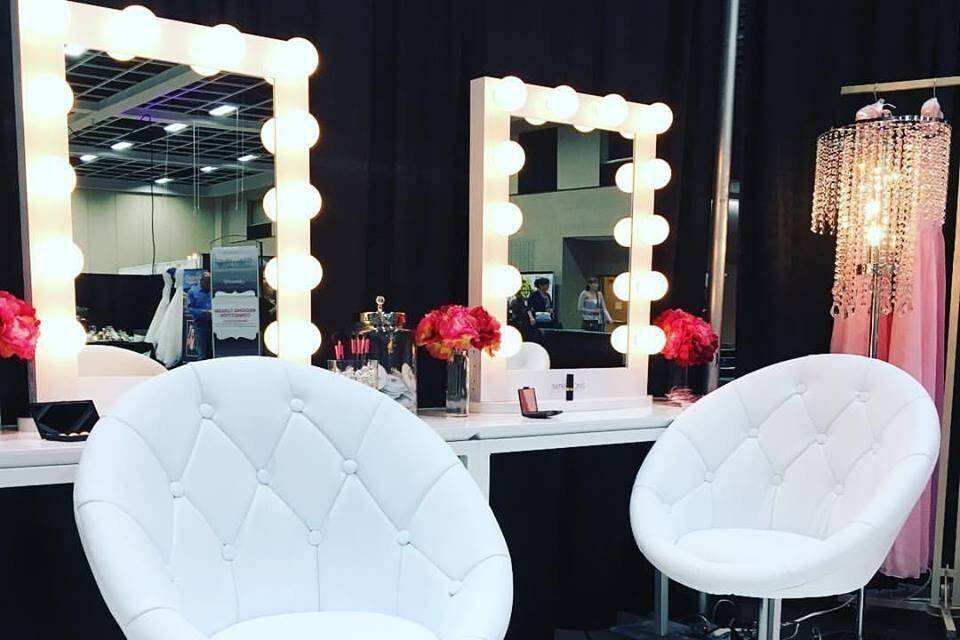
A green room is a special area that is created for performers and VIPs before, during, and after events. Depending on the size of the event, a green room can provide a variety of amenities such as comfortable chairs, couches, tables, snacks and beverages, entertainment systems (television sets, music players), and more.
11. Consider How Difficult or Easy Each Venue is to Reserve
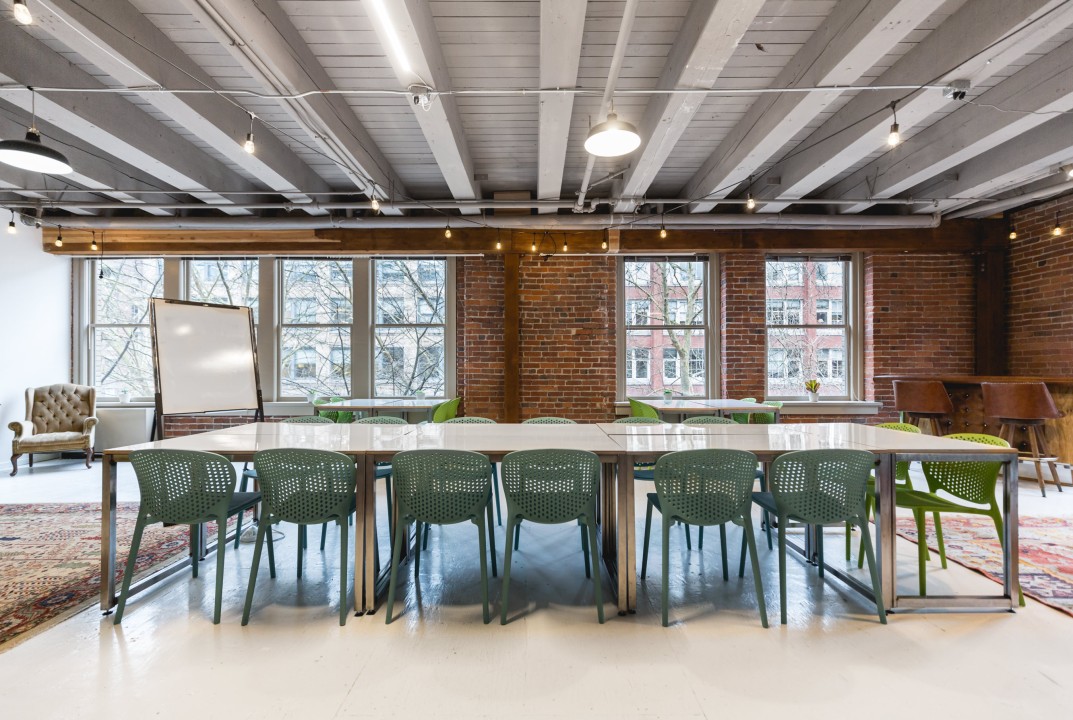
When choosing the perfect venue for your corporate event, you will want to consider just how difficult or easy it is to reserve. Some venues may require a great deal of lead time and negotiation to secure, while others may be more accessible.
12. Consider the Reputation of the Venue

When it comes to choosing a venue for a corporate event, it is important to consider the reputation of the venue. Reading online reviews and checking out customer testimonials can give you an idea of how the venue has worked for other events, allowing you to make informed decisions on what would work best for your own.
Corporate event planning is a complex process. However, with the right approach, it becomes a manageable task. By considering these tips and aspects, you can ensure a seamless venue selection process, leading to a memorable, successful corporate event.
 Event, Party & Wedding Planning Tips & Ideas for Celebrations Party and Event Planning Tips, Resources and Venues
Event, Party & Wedding Planning Tips & Ideas for Celebrations Party and Event Planning Tips, Resources and Venues
